MercoPress. South Atlantic News Agency
Tag: soybean
-
Friday, December 14th 2018 - 09:05 UTC
US confirms China's first purchase of soybeans since the start of the trade war

The United States government officials on Thursday hailed China's first meager purchase of U.S. soybeans since its trade war with the United States began in July and said they hoped for, but could not guarantee, more to come.
-
Wednesday, November 21st 2018 - 08:32 UTC
Brazilian farmers in Mato Grosso satisfied with the soybean planting progress
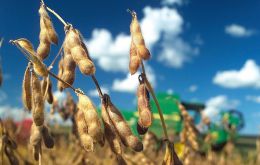
Brazil's Mato Grosso farmers are happy about their soybean planting progress this year, as they have finished sowing almost 90% of their soybean acres and are expecting an early harvest at the end of December.
-
Thursday, November 15th 2018 - 09:01 UTC
Argentina becomes a major importer of US soybeans
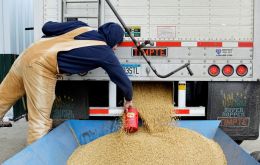
The world of soybean shipping has turned upside down thanks to the ongoing U.S.-China trade war. Argentina, the No. 3 global soy grower, is making major purchases of U.S. supplies. A weekly measure of US shipments to Argentina just rose to the highest in at least 35 years, U.S. government data showed Tuesday.
-
Wednesday, September 26th 2018 - 09:08 UTC
Brazil expected to import a million tons of soybeans from the US
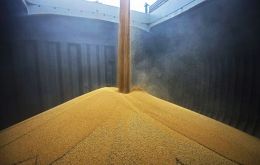
Brazil, the world's No 1 soy exporter, is expected to import around one million tons of the oilseed in coming months from its largest global competitor, the United States, as local supplies dwindle, according to Sao Paulo-based grain trader Agribrasil.
-
Saturday, September 22nd 2018 - 08:30 UTC
Argentina ready to launch a satellite to monitor natural disasters and soil moisture

Argentina is launching a new microwave imaging satellite to monitor natural disasters and soil moisture, in a long-term bid to bolster the farm sector, an industry that has historically been the backbone of the country’s economy.
-
Thursday, September 20th 2018 - 08:32 UTC
US supplants Brazil as leading supplier of soybeans to the European Union
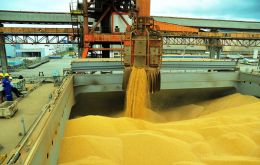
The United States has supplanted Brazil as the European Union's top supplier of soybeans since a deal in July with President Donald Trump to avert a trade war, according to EU data seen by Reuters on Thursday.
-
Wednesday, September 19th 2018 - 08:44 UTC
Brazilian farmers encouraged by moisture conditions to plant soy and corn
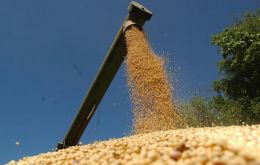
Brazilian farmers sped up soy and corn plantings this week for the country’s next grain crop, under favorable weather conditions and a positive market outlook, despite a sharp fall in soybean futures in Chicago on Tuesday. Soybean planting in Brazil’s second-largest producing state of Paraná reached 9% of the expected final area this week, up 8 percentage points from last week and compared to only 1 percent at this time last year, as ample soil moisture allowed for a quick start of fieldwork.
-
Saturday, September 8th 2018 - 08:43 UTC
Brazilian court overturns ban on products containing glyphosate

A Brazilian court this week overturned an injunction banning products containing the herbicide glyphosate, knocking down a previous ruling that had been set to disrupt the soy planting season set to begin this month.
-
Friday, August 31st 2018 - 08:53 UTC
Chinese buyers leave the US soy exporters conference empty handed
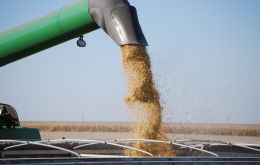
An annual U.S. soy exporters' conference wrapped up on Wednesday without any known sales to Chinese buyers, in sharp contrast to previous years when billions of dollars of the main U.S. cash crop have been signed over to China in elaborate ceremonies.
-
Thursday, August 23rd 2018 - 08:45 UTC
Brazil forecasted to expand soybean acreage to a new record

Brazilian farmers were forecast to expand the country’s soybean planted area for the 12th consecutive year amid strong demand from Asia and in spite of risks related to the exchange rate and higher freight costs. Brazil is likely to expand the area to a record 36.28 million hectares this season, which farmers will start planting around September, a 3.2% expansion from the previous cycle based on government data.
